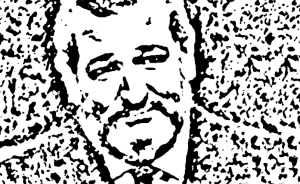
Why Public Health Must Oppose Fascism
When we talk about threats to public health, we usually think about diseases, disasters, or lack of medical care. But political systems also shape health. One of the biggest dangers to wellbeing is fascism. Fascist governments do more than limit freedom. They also create conditions that harm the health of individuals, families, and entire communities.
For public health professionals, understanding why fascism is bad is about protecting lives and promoting wellbeing.
What Is Fascism?
Fascism is a system of government that is highly authoritarian. Leaders hold total power, often gained through violence, fear, or propaganda. In fascist systems:
- Citizens lose basic rights like free speech or free press.
- Minority groups are often targeted, discriminated against, or excluded.
- Leaders use force to silence opposition.
While some may think of fascism as a problem of the past, history shows that whenever societies drift toward authoritarian control, health and wellbeing decline.
How Fascism Harms Health
Public health depends on trust, freedom, and access to good information. Fascism weakens all three.
1. Suppression of Science and Data: Public health relies on open science and accurate data. Fascist leaders often control information, spread propaganda, and punish experts who share inconvenient truths. This means that outbreaks may be hidden, research may be censored, and lifesaving knowledge may never reach the public. The result is delayed action, more disease, and unnecessary deaths.
2. Attacks on Vulnerable Communities: Fascist systems usually target specific groups—based on race, religion, gender, or political views. These groups face discrimination in housing, jobs, and healthcare. Exclusion raises stress, worsens mental health, and reduces access to services. When whole communities are denied care, the health gap between groups widens sharply.
3. Violence and Fear: Public health is about safety as much as medicine. Fascism normalizes state violence, surveillance, and fear. People live under constant stress, which is known to increase risks for heart disease, depression, and chronic illness. Violence also disrupts families, schools, and neighborhoods, making it harder for communities to thrive.
4. Silencing of Communities: Strong health systems depend on participation. When people can speak up about unsafe housing, poor working conditions, or bad air quality, public health improves. Fascist regimes silence this kind of input, often punishing those who complain. Without community voice, harmful conditions persist, and preventable health problems go unchecked.
Why Public Health Needs Democracy
Public health thrives under democracy, where:
- Citizens can advocate for better services.
- Science can be shared openly and debated.
- Health workers can challenge policies that harm people.
- Equity and justice are at least possible to pursue.
Democracy isn’t perfect, but it allows the space for change, participation, and accountability. Fascism closes that space, replacing community wellbeing with state control and fear.
Lessons from History
History gives clear examples of how fascism destroys health. In Nazi Germany, medical research was twisted to justify discrimination, leading to horrific abuses. In Fascist Italy, political control limited honest reporting about hunger and disease. In every case, the people suffered while leaders gained more power.
Today, authoritarian movements still threaten health. Whether through restricting reproductive rights, censoring public health data, or targeting immigrants, these actions weaken the health of societies. Public health professionals must recognize these patterns and respond.
Public Health’s Role in Resistance
Public health is not neutral when lives are at stake. To protect wellbeing, the field must:
- Defend science by supporting open research and trusted communication.
- Advocate for equity by ensuring vulnerable groups get access to care.
- Promote democracy by encouraging participation, community voice, and civic health.
- Educate communities about how political systems directly affect health outcomes.
Standing against fascism means standing for healthier, safer, and more just communities.
Conclusion
Fascism is a direct threat to health. By suppressing science, attacking vulnerable groups, spreading fear, and silencing voices, fascist governments block the path to wellbeing. For public health professionals, opposing fascism is part of the mission to create conditions where all people can live healthy, fulfilling lives.
A healthier future depends on democracy, equity, and truth. Public health must remain a strong voice against fascism, because protecting freedom is also protecting health.



